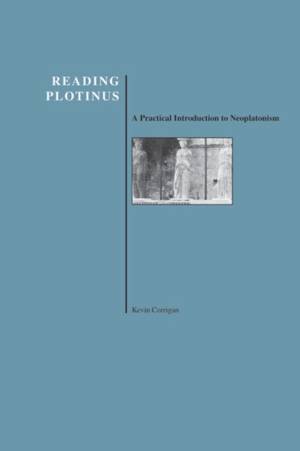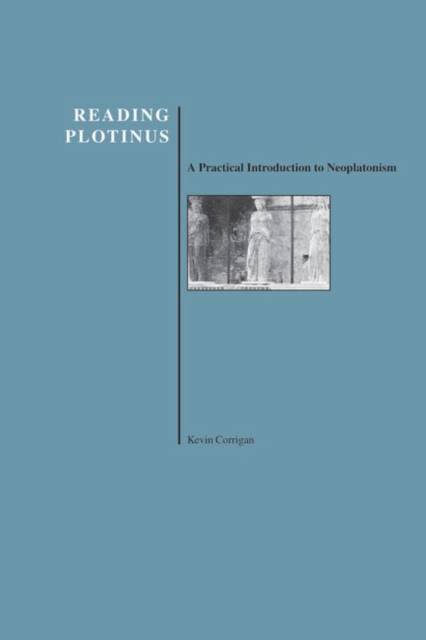
- Afhalen na 1 uur in een winkel met voorraad
- Gratis thuislevering in België vanaf € 30
- Ruim aanbod met 7 miljoen producten
- Afhalen na 1 uur in een winkel met voorraad
- Gratis thuislevering in België vanaf € 30
- Ruim aanbod met 7 miljoen producten
Zoeken
Reading Plotinus
A Practical Introduction to Neoplatonism (History of Philosophy)
Kevin Corrigan
Paperback | Engels
€ 40,45
+ 80 punten
Omschrijving
This book provides a practical reading guide to the thought of Plotinus, the great philosopher who was born in Alexandria in the third century a.d., lived in Rome and wrote in Greek. Deeply immersed in earlier Greek philosophy, especially Plato and Aristotle, Plotinus' thought was to have an immense influence upon the theology and philosophy of Christianity, Judaism, and Islam, as well as to bear a deep resonance with the major forms of Eastern mystical thought, particularly Buddhism and Hinduism. At the same time, Plotinus' philosophy remains unique in its own right. Corrigan's work presents, in an accessible and yet authoritative way, three treatises translated in full, as well as several other major passages representative of the wide range of thought to be found in Plotinus' Enneads. There is extensive and detailed commentary accompanying each translation, which helps the reader to work his or her way through Plotinus' often highly compressed thought. The concluding chapter draws together the practical and theoretical significance of Plotinus' writings and situates them in an accessible manner for both first-time reader and scholar alike within the subsequent vast history of Neoplatonism which extends through the Mediaeval and Renaissance worlds and right into modern times. This book is intended to be of use for anyone who wants to read and understand Plotinus, non-specialists and specialists, and it will be particularly helpful for students and scholars of philosophy, history of ideas, aesthetic theory, and literature and religious thought, both Western and Eastern.
Specificaties
Betrokkenen
- Auteur(s):
- Uitgeverij:
Inhoud
- Aantal bladzijden:
- 306
- Taal:
- Engels
Eigenschappen
- Productcode (EAN):
- 9781557532343
- Verschijningsdatum:
- 10/12/2004
- Uitvoering:
- Paperback
- Formaat:
- Trade paperback (VS)
- Afmetingen:
- 137 mm x 204 mm
- Gewicht:
- 512 g

Alleen bij Standaard Boekhandel
+ 80 punten op je klantenkaart van Standaard Boekhandel
Beoordelingen
We publiceren alleen reviews die voldoen aan de voorwaarden voor reviews. Bekijk onze voorwaarden voor reviews.











